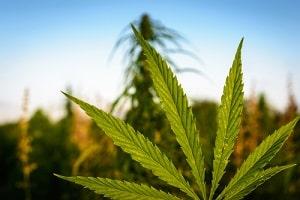Can Tennessee Farmers Face Drug Charges with Recent Regulations?

State policies regarding marijuana have been under deliberation throughout the United States for the past decade. With many states legalizing cannabis for medical and recreational use, Tennessee is one of the few states that has made little progress on the matter, aside from its farming population. In 2018, the hemp growing industry was legalized federally, meaning licensed farmers can grow this crop. Opening up this industry to Tennessee farmers has made the state one of the leading producers in the country. According to a USA Today report, Tennessee has seen a 1,581 percent increase of hemp farmers throughout the state, with 3,800 registered growers as of November 1, 2019. These farmers are licensed to grow up to 51,000 acres of hemp throughout Tennessee, which equates to approximately 10 percent of all of the licensed acreage in the United States. New federal regulations have been released for those participating in the 2020 planting season, and with Tennessee’s high percentage of participation, it is important that state farmers and consumers understand the rules being established to avoid facing drug charges.
Details of the Regulations
On Oct. 31, 2019, the USDA released draft regulations that apply to hemp farmers nationwide. These changes focus specifically on the testing protocols used for the crop. Farmers may be able to grow the same plant that produces marijuana; however, regulations remain in place to limit the level of tetrahydrocannabinol (THC) present in the plant. THC is the psychoactive component found in hemp that causes the “high” that legislators continue to ban in Tennessee. According to these recent regulations, farmers will be deemed negligent if the THC content present in their crops reaches 0.5 percent, since the legal limit is 0.3 percent. If these crops continue to reach higher levels of concentration for multiple years, the grower risks having his or her license suspended. These “draft rules” will act as a guide for the 2020 growing season, and the final rules will be established in November 2021.
What Can Farmers Do to Protect Themselves?
Although it may seem difficult to predict THC concentration before producing the plant, there are various measures that hemp growers can take to avoid exceeding the legal limit. The first preventative measure that may be taken by farmers can be completed before putting the seeds in the ground. Paying attention to the genetics of the seeds being selected is one way that a grower can avoid making this mistake. Different seed varieties contain different levels of THC, making it possible to rule out those that exceed the 0.3 percent limit. Farmers can also monitor their crops by testing them more frequently than they are required to do so. Tennessee states that hemp farmers must submit to one round of crop testing, but those who participate in multiple testing sessions may be able to see which of their plants may be considered illegal before facing potential penalties. Crops that are considered “noncompliant” will be collected and destroyed to avoid the distribution of illegal substances throughout the state.
Contact a Knoxville, TN Criminal Defense Lawyer
The draft regulations explained above are required of farmers; however, the stipulations can often seem confusing to consumers. The difference between hemp and marijuana can be confusing to those who do not have a background in agriculture or extensive knowledge of the difference between the two substances. This confusion can land consumers into hot water, whether they recognize the difference or not, and this is especially true in states with strict marijuana regulations such as Tennessee. Jeffrey Coller, Knoxville Criminal Defense Attorney, has over 40 years of experience defending drug charges, and he remains up to date on all of Tennessee’s drug-related regulations. If you are facing drug charges and need an experienced attorney by your side, call our Knox County drug crimes defense attorneys today at 865-281-1000 for a free consultation.
Sources:
https://www.commercialappeal.com/story/news/2019/12/01/federal-hemp-laws-usda-impact-tennessee-farmers/4270724002/
https://www.federalregister.gov/documents/2019/10/31/2019-23749/establishment-of-a-domestic-hemp-production-program



 Map & Directions
Map & Directions


